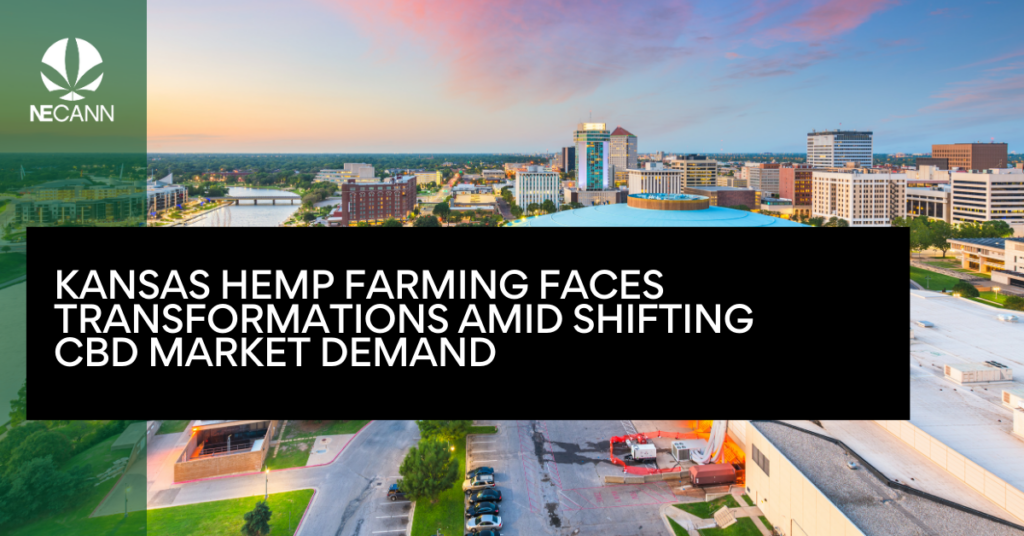Kansas, once seen as a thriving hub for hemp cultivation, has witnessed significant shifts in its hemp farming landscape. As recently as 2019, more than 200 farmers in the state were licensed to cultivate hemp. However, fast forward to this year, and that number has dwindled to a mere 41, according to a report by KAKE. This dramatic reduction in hemp licenses can be attributed to several factors, notably the changing dynamics of the hemp market.
In 2019 and 2020, a substantial percentage of Kansas farms ventured into hemp cultivation, primarily for CBD oil production, comprising about 90% of the hemp industry in the state. However, this trend has shifted dramatically. Today, less than 5% of Kansas farms are engaged in growing hemp for CBD oil production. This shift can be attributed to evolving market dynamics and changing consumer preferences.
Sarah Stephens, CEO of Midwest Hemp Technologies, highlighted the transition in the state’s hemp industry, stating that while there has been a reduction in the number of growers and acres dedicated to CBD production, there has been a notable increase in those focusing on hemp fiber and grain. This shift reflects the adaptability of the agricultural community in Kansas, which is exploring alternative opportunities within the hemp sector.
Kansas Deputy Agriculture Secretary Kelsey Olson shed light on the factors contributing to this transformation. She pointed out that the initial years of hemp production in Kansas were buoyed by a strong CBD market. However, as more states, including neighboring Missouri, legalized adult-use cannabis, the demand for CBD products experienced a decline.
Olson emphasized, “The landscape has changed over the last few years across the country. I think that may have shifted some of the use.” This market shift has compelled Kansas hemp farmers to diversify their focus and explore new opportunities within the hemp industry.
Melissa Nelson, co-owner of the hemp processing facility, South Bend Industrial Hemp, has been actively involved in assisting Kansas hemp producers in navigating these changes. She mentioned that some hemp producers are working diligently to educate fellow farmers on the potential of hemp fiber and grain markets.
Nelson believes that Kansas possesses the ideal conditions for hemp cultivation, including the right landmasses, seasons, temperatures, and farmer know-how, which positions the state to be a leader in the evolving hemp industry.
The Kansas hemp industry is undergoing a significant transformation as it adapts to changing market dynamics. The decline in licenses for CBD production has prompted farmers to explore opportunities in hemp fiber and grain markets. This shift showcases the resilience and adaptability of Kansas farmers, who are poised to lead the industry into a new era of hemp cultivation.
Stay informed about the ever-changing cannabis industry. Subscribe to NECANN now



